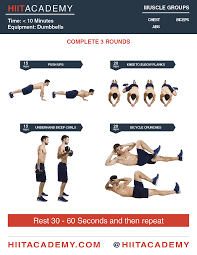
The amount that a personal trainer makes will vary depending on several factors. These factors include experience, taxation, certification, and YMCA Membership. Earning more requires certification. One certification is not enough to earn more than someone who has more experience. We'll be looking at all these factors and giving you an idea of how much a personal coach should make. We'll also be discussing the salary structure of a personal coach at the YMCA.
Experience
Personal trainers need to be skilled in communication and customer service. Personal trainers need to have a deep understanding of the clients' needs in order to customize their services. It is important for a personal trainer to be able to listen to their clients' concerns and suggest the right exercise routines to help them reach their goals. Personal trainers need to be able handle people of all fitness levels.

Certificate
To become a certified personal training professional, you will need to first complete a program including the certification exam. There are several options for preparing for the exam, including online courses and traditional books. It can take anywhere from 80 to 120 hours depending on the program. To make sure that you are well prepared, practice tests will be necessary. Many certification programs offer practice exams. However, some require that you take the exam within six months.
Taxes
You may have wondered how personal trainers pay taxes. This process can be complicated and time-consuming. There are several options for preparing for tax season. First, you should hire an accountant. Although they may not be required, an accountant can help you with your taxes and deductions. These tips can make tax season simple and painless. Personal trainers, in addition to an accountant, should also keep these points in mind when filing tax returns.
Structure of the YMCA's Salary
Each organization will have a different YMCA compensation structure for personal trainers. On average, the salaries for personal trainers at nonprofits like YMCA amount to $34,490 per annum. Depending on your experience, YMCAs offer flexibility and health insurance benefits. They also offer residential benefits. As a personal training specialist at the YMCA you will be able to interact with a broad range of people.
CSCS certification
To be a UK certified personal coach, you need a CSCS Certificate. The CSCS certification covers a broad spectrum of subjects, including anatomy and sports psychology. This CSCS course requires a substantial amount of time, money, and effort. It is comparable to a college-level course. Individuals who are interested in working closely with athletes will find it worthwhile. NCAA and some private facilities require CSCS Certification.

Gold's Gym pay structure
Gold's Gym's average salary is $3,092,822, with a range of $2,675,087 up to $3,554,516. Each individual's salary can vary depending upon the position, education, and skill set. Below, we'll look at the salary ranges for Gold's Gym, as well as the total compensation. The salary ranges at Gold's Gym vary depending on where you are located. So, when comparing the compensation provided by the company with others, keep this in mind.
FAQ
How do I get started with Fitness?
Start small. Take 10 minutes each day to walk around your block. This will give you basic movement patterns and give your muscles time to adapt to the new routine. After you have mastered this basic form of exercise, you can add more steps to your daily schedule.
Can I have alcohol at work?
Alcohol has calories, so it's not recommended to consume large amounts while working out. A moderate amount of alcohol, one drink per day, may be beneficial for endurance during exercise. It may also reduce fatigue and muscle aches caused by intense exercise.
How does caffeine affect my sleep?
Caffeine can affect how quickly you fall asleep, and how well you sleep. Caffeine causes drowsiness, which makes falling asleep easier. You may stay awake for longer periods, which makes it more difficult to fall asleep. If you drink coffee or energy drinks right before bedtime, try drinking them later in the evening instead.
Can I exercise after eating?
It depends on the exercise you do. After meals, avoid strenuous physical activity because it could cause stomach cramps. Focus instead on light aerobic exercises like biking or walking briskly.
Does exercise cause me to lose weight?
Yes. Regular exercise will help you to lose weight by burning extra calories. Exercising can increase your metabolism so that you can burn calories even when you're not working out.
Statistics
- An estimated 110,000 deaths per year could be prevented (cdc.gov)
- Globally, 81% of adolescents aged 11-17 years were insufficiently physically active in 2016. (who.int)
- Physical activity confers the following maternal and fetal health benefits: a decreased risk of pre-eclampsia, gestational hypertension, gestational diabetes (for example, 30% reduction in risk) (who.int)
- In 2018, the World Health Assembly agreed on a global target to reduce physical inactivity by 15% by 2030 and align with the Sustainable Development Goals. (who.int)
External Links
How To
How to Burn Belly Fats Faster
When we are trying to lose weight, belly fat is often seen as a problem. However, Belly Fat can be beneficial if you really think about it. Your organs are protected from being damaged by excess belly fat. Let's find out how to lose belly fat quickly.
Stress and inactivity are two of the major factors that cause us to store body fat. Because stress stimulates the release of cortisol hormone, it makes us hungry all the time. Cortisol levels are increased by insulin. The excess calories stored as fat are then stored by insulin. A lack of sleep leads to adrenaline being released into the system which causes an increased appetite. These extra calories are broken down through exercise.
There are many different ways to reduce bellyfat. You can try any one of them depending upon your budget. Here are some tips to help you get rid of belly fat quickly.
-
You can eat less. Instead of eating three large meals per day, try to eat smaller meals. You will eat less calories in general.
-
Make sure you drink plenty of water. Water helps flush out toxins from the body and keeps you hydrated. You won't overeat if you drink water before you eat.
-
Avoid unhealthy snacks. If you're looking for quick fixes, snack foods like chips, cookies, candies, etc. These tempting snacks might look appealing. These fattening treats are best avoided as they have too many empty calories and sugar. Instead, choose healthy alternatives like fruits, veggies, nuts, seeds, and whole grains.
-
Three times per week, strength training is recommended. Strength training increases muscle mass, which can help you burn more calories while still resting. Strength training strengthens bones, muscles and ligaments. It can also improve the heart, lungs, joints, and other body systems.
-
Move regularly and stretch. Stretching can improve flexibility, mobility, and reduce back pain. Walking for 30 minutes is a great way to burn calories.
-
Reduce alcohol intake. Avoid alcohol.
-
Lose weight gradually. The first step towards losing weight is to identify what your current weight is. Add 5%-10% of your total bodyweight to calculate your ideal size. Once you have reached your target weight, begin decreasing your daily calories intake by 500-1 000 calories until you reach your goal.
-
Avoid processed foods. These foods contain high levels of sugar, salt, and preservatives. These processed foods are often convenient, but they lack enough nutrients for good health.
-
Don't skip breakfast! Breakfast is good for your concentration, memory, and energy. Include protein (like eggs) and fiber, like oats, in your breakfast.
-
Have regular bowel movements. Constipation and irregularity can cause gas and bloating. Drink plenty of water to prevent gas and fiber ingestion.